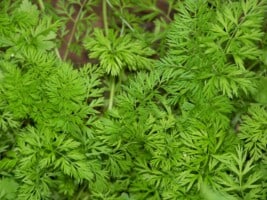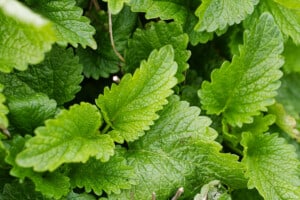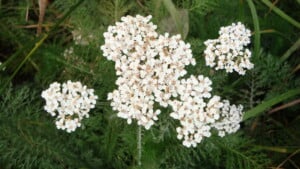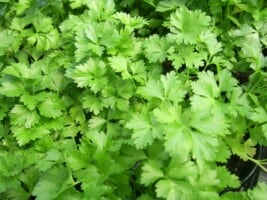Peonies are fast becoming a popular plant around the world as they produce beautiful and colorful blooms every year. This growing popularity can be concerning for animal owners and parents alike as these plants could be dangerous. So, should we be worried about Peonies?
Contents
Peonies are among the many plants that are toxic to both animals and humans. Even though these plants are toxic, they are still planted in gardens and parks around the world, making them a bigger threat. You should try and keep your children and animals away from this plant.
Related: When Are Peonies In Season?
Are Peonies Poisonous To Humans?
Peonies are stunning plants with beautiful, colorful blooms that are eye-catching to every passer-by that sees your garden or floral arrangement in your home. Peonies are generally divided into two groups, the tree Peonies, and the herbaceous Peonies; both have beautiful flowers and are extremely popular.
As these plants are popular and are seen in almost every garden just about, you may be wondering if they are poisonous to humans or not. This can be a major concern, especially for anyone with small children who may accidentally ingest the plant around the neighborhood.
Peonies can be toxic to humans if they are consumed in large quantities. But these plants have been used for decades in traditional medicines and in some savory and sweet dishes.
However, these medicines and meals use very specific parts of the Peony plant, like the petals or the roots, and they are used in small quantities and mixed with other ingredients.

So, it is not a good idea to go and pick the Peonies from your garden and start eating them as is, as this can be toxic to you or the person consuming the plant. You need to try and keep this plant away from small children to help stop them from accidentally consuming any part of the plant.
Are Peonies Poisonous To Dogs?
With the growing number of Peonies popping up around neighborhoods, this can also be concerning for dog owners as these plants seem to be everywhere. These plants are also often used in parks to give the park some colorful accents, and they are used to decorate street corners, which do look excellent.
This can be concerning to many dog owners as there are a number of plants that are toxic to dogs; some can even prove deadly to dogs if they are ingested. Not every plant that is used around certain neighborhoods and parks is properly researched beforehand to see whether they are dog friendly or not.
So, when Peonies are used in dog-friendly or regular dog parks and on street corners where you walk your dog, is there a need for genuine concern, or are you being overly protective? Peonies are, unfortunately, toxic to dogs, and you should always try to stop your dogs from coming into contact with all Peony plant varieties.
If you know that there are Peonies on your regular dog walking route, you should change your route to avoid the Peony sections. You should also make sure that your garden is free of these plants as they can spread from your neighbor’s garden to your fairly easily.
Are Peonies Poisonous To Cats?
As Peonies are fast becoming a popular plant springing up everywhere in cities and parks, this can be concerning for cat owners. These plants are frequently used to decorate gardens and office parks as they are extremely colorful and create a beautiful aesthetic.
The number of Peonies beginning to pop up around your home can be extremely concerning, as there are a wide variety of plants in the world that are toxic to cats. Unfortunately, not everyone will do their research to ensure these plants are safe for their neighborhood pets.
This fact can be extremely concerning for cat owners, especially as you have little to no control over what your beloved cat comes into contact with while they are on their travels outside your home. So, are your concerns for your cat valid, or are they not?
Sadly, your concerns are valid regarding Peony plants, as they are toxic to cats if it is ingested. Trying to keep your cat away from the Peonies can be a challenging task, and you may not always be able to do this, but you should try your best to stop them from ingesting the plant.
If you have a decent association with your neighbors, it may be best to tell them about their Peonies and how they can affect your cat, and maybe they will be kind enough to replace them with a cat-friendly plant. Otherwise, you will need to watch your cat for any symptoms of Peonies poisoning.

Are Peonies Poisonous To Livestock?
With the number of Peonies popping up everywhere, it’s not just domestic animal owners concerned for their animal’s well-being, but livestock owners are also worried about their animals when it comes to Peonies.
Unfortunately, Peonies are toxic to all livestock animals as well. This is due to the toxin called paeonol contained in all parts of the Peony plant. If you notice this plant in your fields, you should pull them out immediately to prevent your livestock from consuming them, as your livestock will develop Peony poisoning if they ingest this plant.
Symptoms Of Peonies Poisoning
So, Peony plants are toxic to humans, dogs, cats, and other animals, but what would happen if you or your animals consumed this plant? Consuming Peony plants is not likely to kill you or your animals, but it can lead to some unpleasant symptoms, which include:
- Vomiting
- Nausea
- Diarrhea
- Lethargy
- Stomach pain
- Depression
- Dehydration if diarrhea and vomiting become excessive
Peonies are only toxic to humans and animals if they are ingested and generally do not cause any symptoms when they come into contact with skin. However, some people may be sensitive to Peony plants, which can cause some skin irritation or a rash if they touch the plant.
Some symptoms are unique to humans and will occur if a large number of Peonies are consumed. These symptoms include accelerated heart rate, tremors, seizures, excessive menstrual bleeding in women, and miscarriages in women.
These symptoms can become severe and life-threatening if they are not kept under control and treated by a medical professional. If you, a family member, or your animal exhibit any of these symptoms, please consult with your closest medical professional.







